Participate in outreach activities
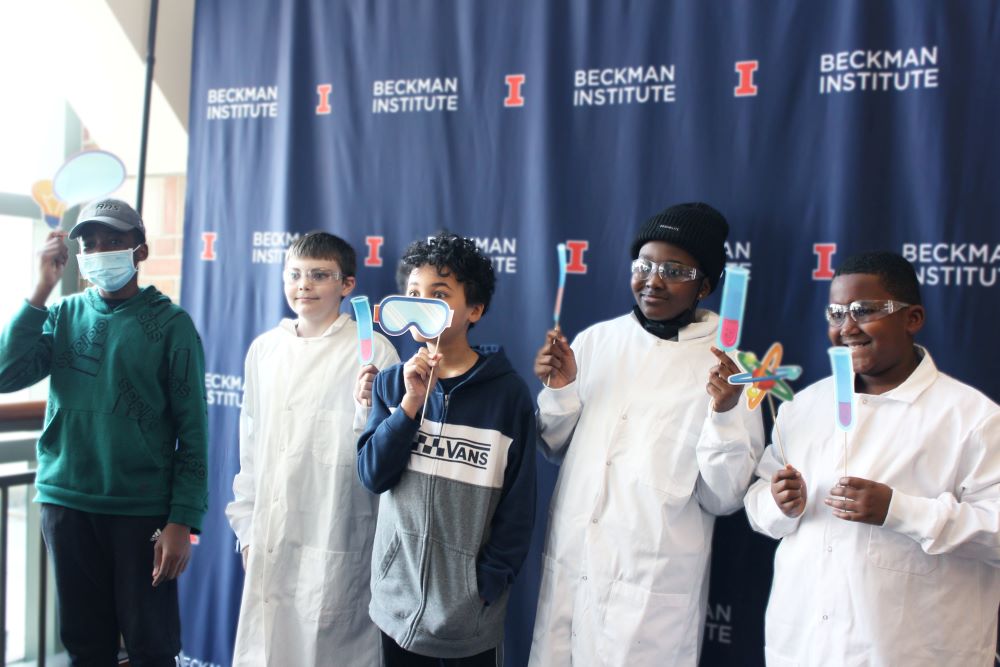
Learn about science and technology through an outreach event
Whether you're an educator, part of a local civic organization or a campus partner, Beckman likely has an outreach activity for you.
Learn about science and technology through an outreach event
Whether you're an educator, part of a local civic organization or a campus partner, Beckman likely has an outreach activity for you.
Participate in Beckman's outreach activities by:
- Signing up for a tour of Beckman
- Expressing interest in a field trip
- Inviting a researcher to speak to your organization
- Planning an educational activity, like a Bugscope session or a stop in the Illinois MRI Exhibit (see a sampling of activities, organized by grade level, below)
- Attending the Beckman Institute Open House
- Attending the monthly Family STEM Nights at the Champaign Park District Martens Center with Illinois Science Explorers
Have questions or want to get started? Contact Lexie Kesler.
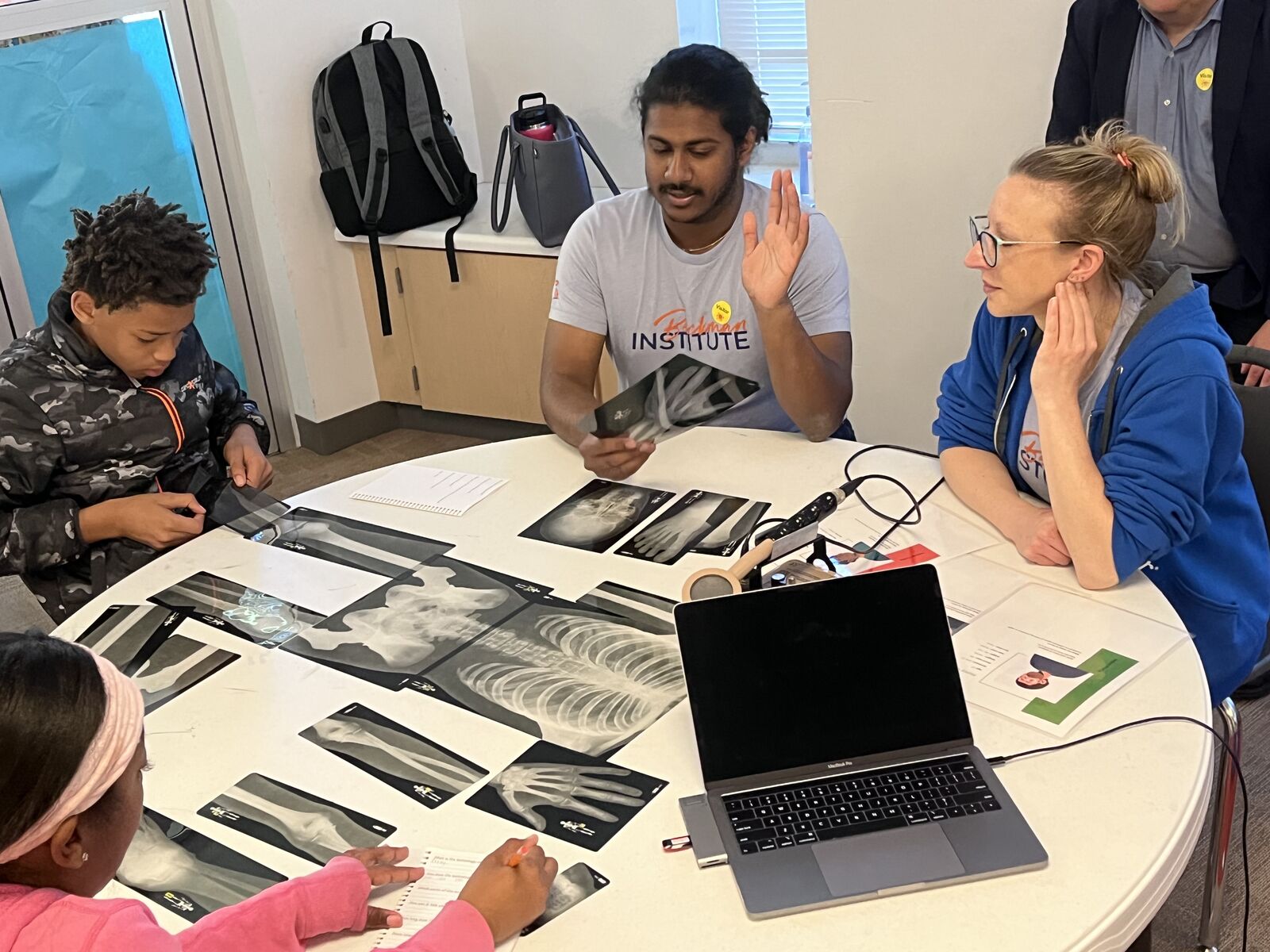
Three Beckman research groups were on the brink of groundbreaking discoveries ... until someone broke into their labs and mixed up their final test subject files. Groups are tasked with learning everything they can about the last three test subjects and the techniques and equipment used in each of the labs. Only then, will they be able to correctly return the final test subject to the correct lab.
Target grades: 3-6
Three Beckman research groups were on the brink of groundbreaking discoveries ... until someone broke into their labs and mixed up their final test subject files. Groups are tasked with learning everything they can about the last three test subjects and the techniques and equipment used in each of the labs. Only then, will they be able to correctly return the final test subject to the correct lab.
Target grades: 3-6
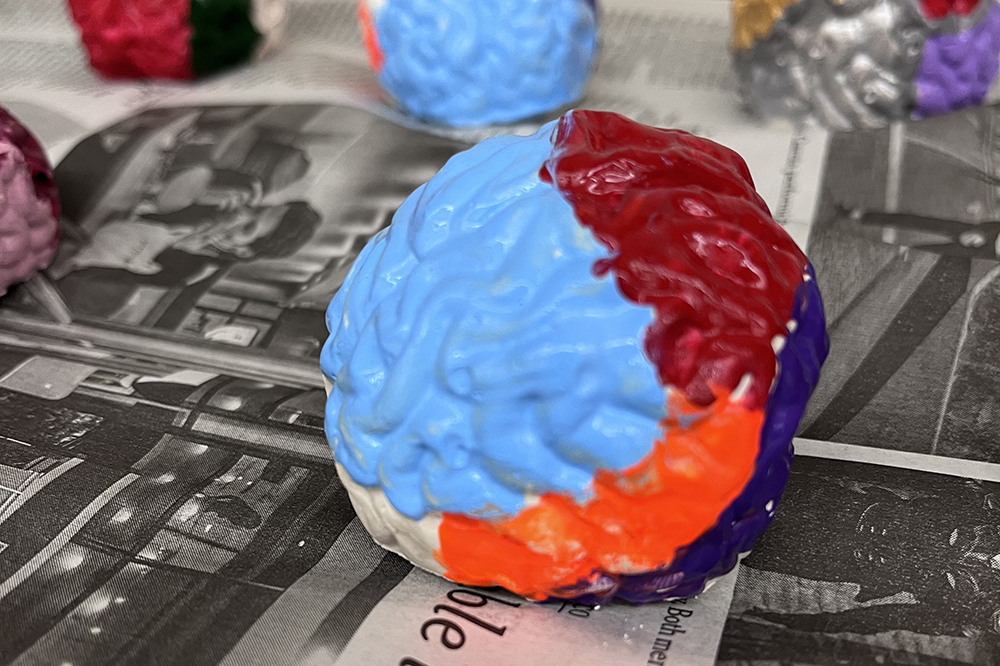
From helping us to solve a conflict with our friend, to coordinating our muscles so we can ride a bike; our brain is incredibly involved in our everyday lives. It even keeps us breathing when we’re asleep.
Students will use their temporal lobe to create fun memory devices to help them understand the various parts of the brain. They’ll experience some of the research that’s been done to explore how the brain works and create a model of the human brain.
Target grades: 4-8
From helping us to solve a conflict with our friend, to coordinating our muscles so we can ride a bike; our brain is incredibly involved in our everyday lives. It even keeps us breathing when we’re asleep.
Students will use their temporal lobe to create fun memory devices to help them understand the various parts of the brain. They’ll experience some of the research that’s been done to explore how the brain works and create a model of the human brain.
Target grades: 4-8
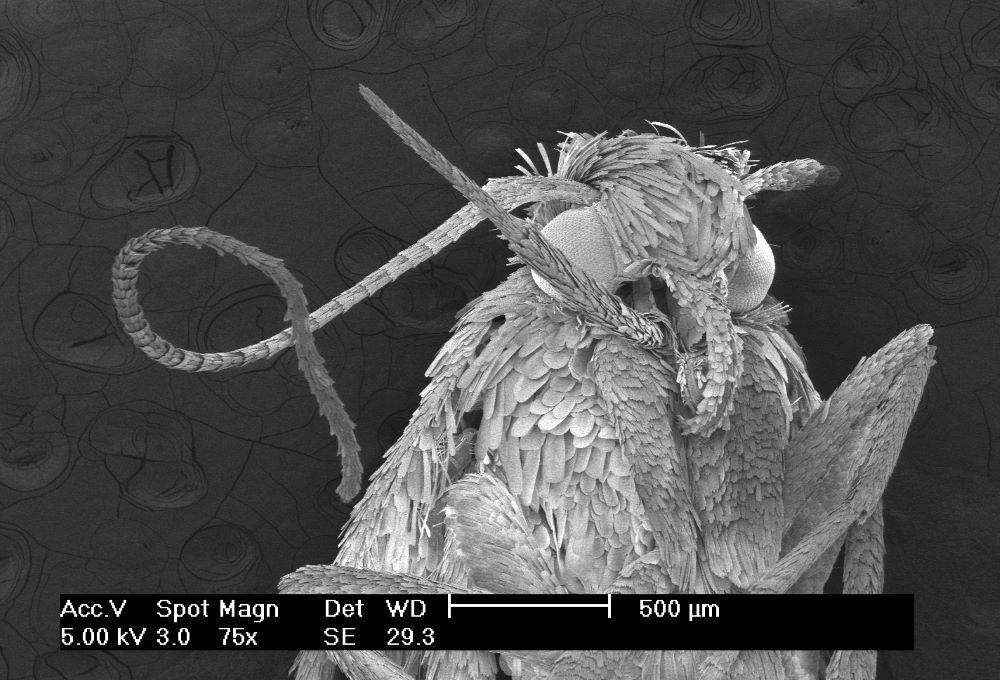
Dive into the microscopic world of pond water, learn all about microscopes, and meet creepy-crawlies up close during a live Bugscope session. Sessions can be done remotely, which means no matter the distance, your class can be a part of this engaging experience. Sign up online or contact the Bugscope team.
Target grades: K-12
Dive into the microscopic world of pond water, learn all about microscopes, and meet creepy-crawlies up close during a live Bugscope session. Sessions can be done remotely, which means no matter the distance, your class can be a part of this engaging experience. Sign up online or contact the Bugscope team.
Target grades: K-12
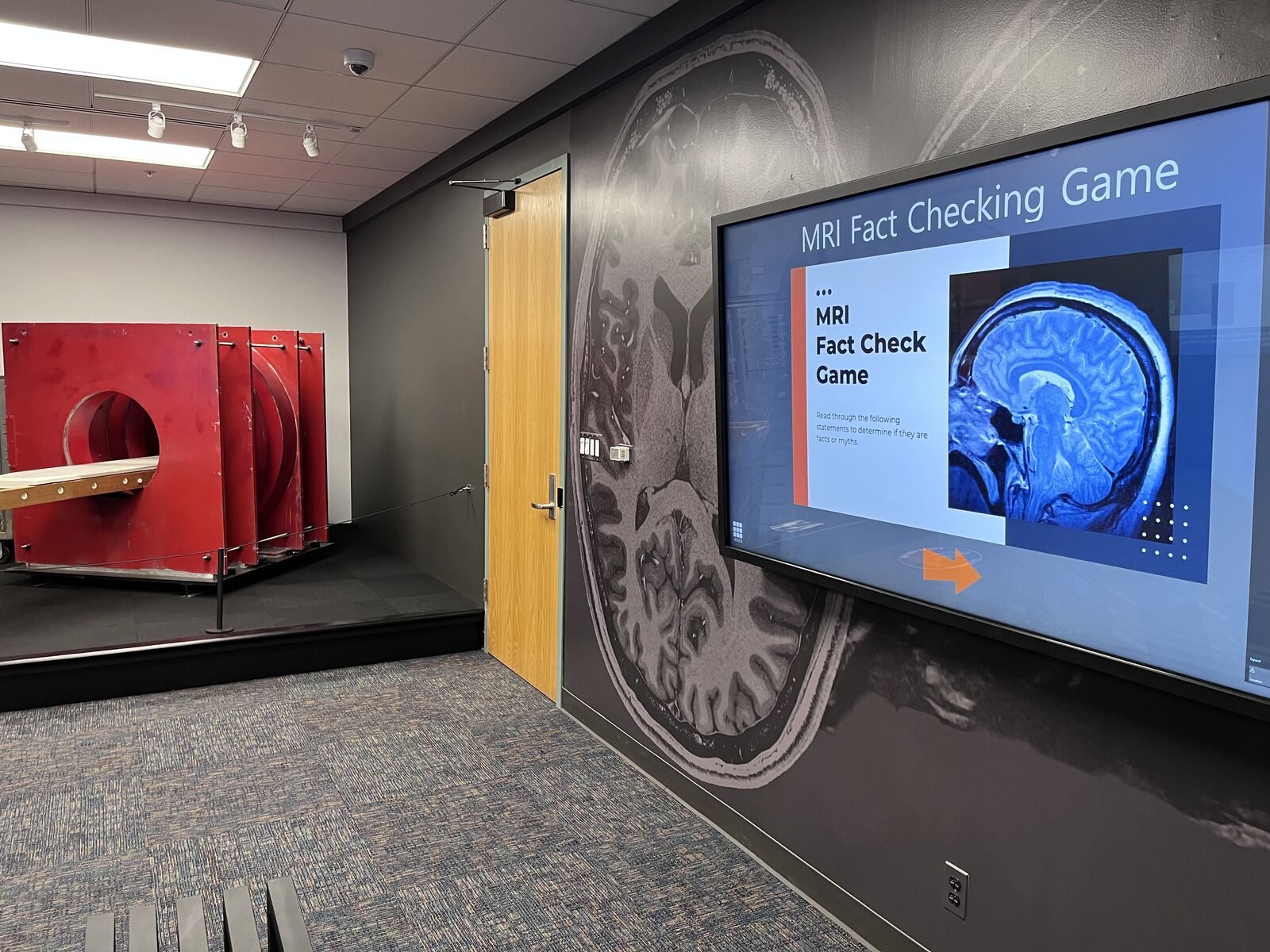
How does an MRI machine work if it never touches your body? Students will create a model of a mini-MRI machine to study how an MRI uses a magnetic field.
This activity can also be paired with a visit to the MRI exhibit at the Beckman Institute where students will see the first-ever human MRI machine. The exhibit also includes an interactive game, where students investigate how MRI machines work, the history of MRI at Illinois, and MRI safety.
Target grades: 3-5
How does an MRI machine work if it never touches your body? Students will create a model of a mini-MRI machine to study how an MRI uses a magnetic field.
This activity can also be paired with a visit to the MRI exhibit at the Beckman Institute where students will see the first-ever human MRI machine. The exhibit also includes an interactive game, where students investigate how MRI machines work, the history of MRI at Illinois, and MRI safety.
Target grades: 3-5
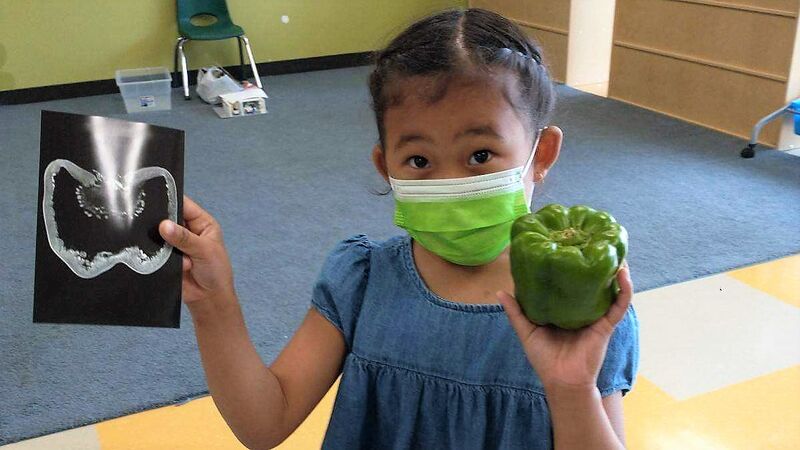
How can doctors and scientists safely see inside of our bodies? One way is through medical imaging. This lesson provides students with a framework for understanding what an MRI scanner does. A fun matching game also allows them to test their ability to imagine what different kinds of fruit would look like from the inside.
Target grades: K-3
How can doctors and scientists safely see inside of our bodies? One way is through medical imaging. This lesson provides students with a framework for understanding what an MRI scanner does. A fun matching game also allows them to test their ability to imagine what different kinds of fruit would look like from the inside.
Target grades: K-3
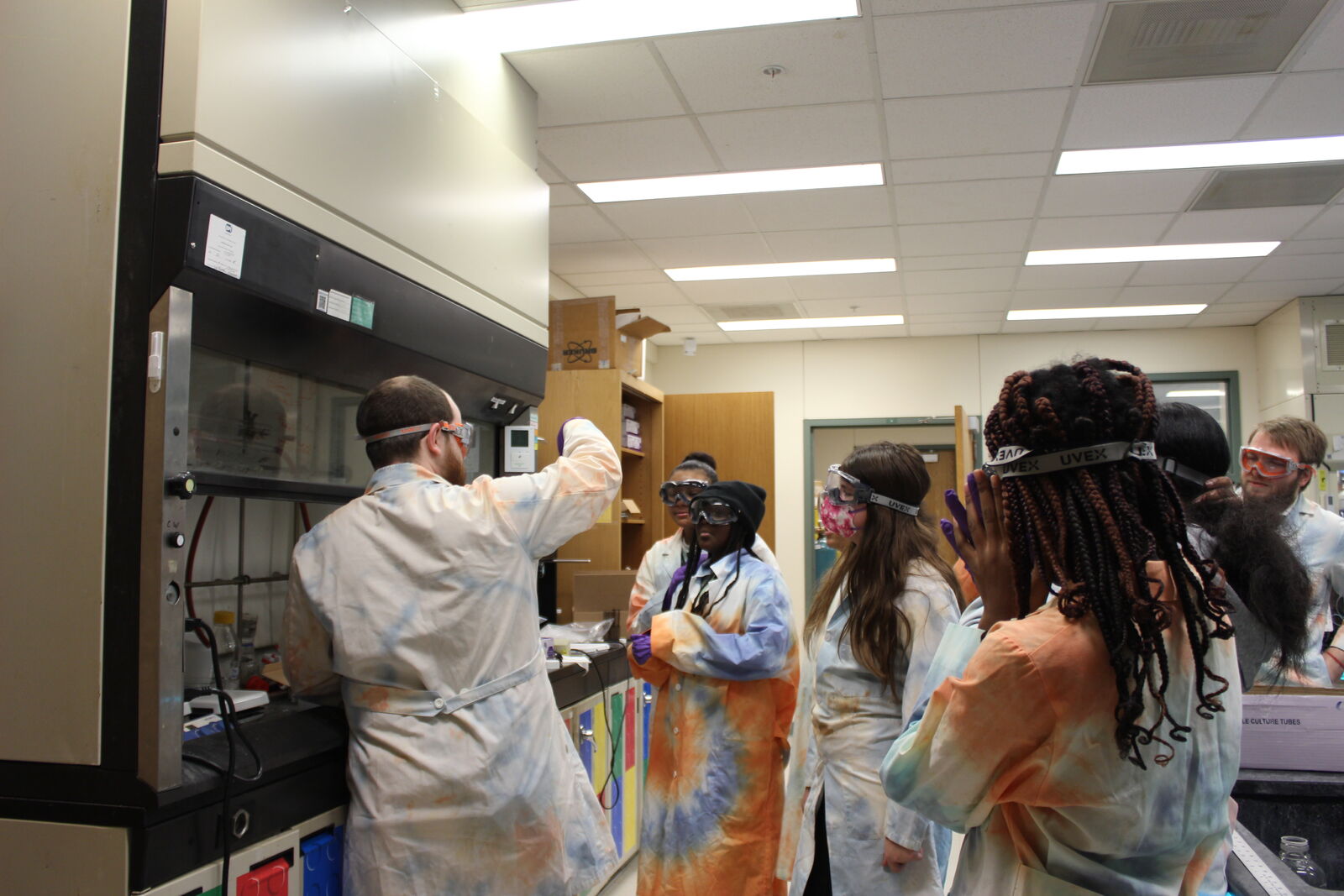
Molecules are everywhere: in food, medicine, and dyes and pigments. During lab visits, young scientists work together to create their own molecular rainbow and see the robots that automate the process of making these colorful molecules. Find out more about opportunities from the Molecule Maker Lab Institute.
Target grades: 5-12
Molecules are everywhere: in food, medicine, and dyes and pigments. During lab visits, young scientists work together to create their own molecular rainbow and see the robots that automate the process of making these colorful molecules. Find out more about opportunities from the Molecule Maker Lab Institute.
Target grades: 5-12
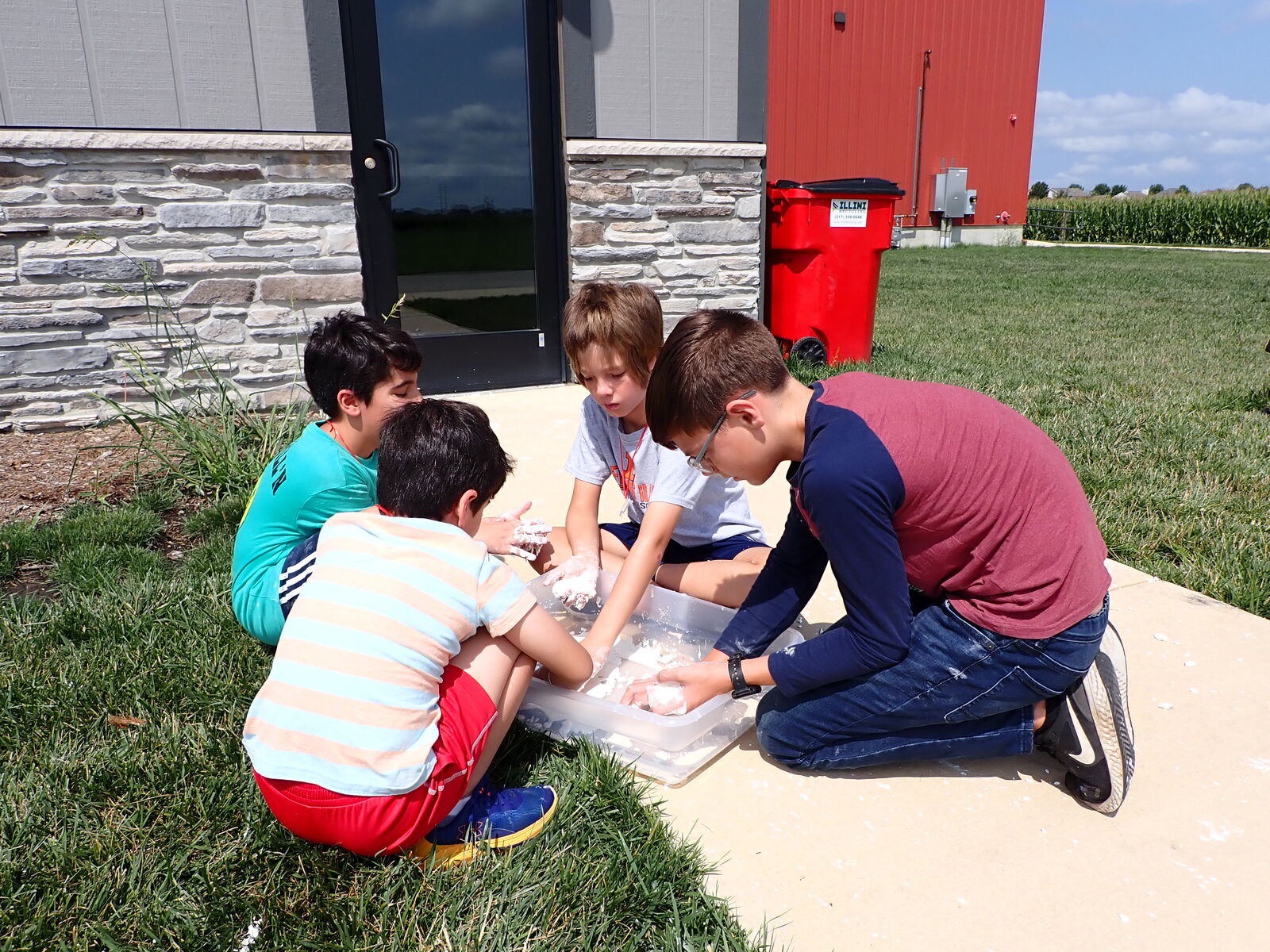
It’s a liquid. No, it’s a solid. No, it’s a viscoelastic fluid! Prepare to get messy in this interactive session! Students will review the characteristics of solids and liquids before moving into an exploration of viscoelastic fluids. Once students observe some of the characteristics of these strange materials, they’ll use their knowledge to complete some challenges as a team.
Target grades: 2-7
It’s a liquid. No, it’s a solid. No, it’s a viscoelastic fluid! Prepare to get messy in this interactive session! Students will review the characteristics of solids and liquids before moving into an exploration of viscoelastic fluids. Once students observe some of the characteristics of these strange materials, they’ll use their knowledge to complete some challenges as a team.
Target grades: 2-7

Students will explore what makes a scientist as they investigate the life of Arnold O. Beckman. Through an immersive storytelling exercise, students will put themselves into the past and be faced with the same decisions Dr. Beckman faced. Will students make the same decisions, or would they have chosen a separate path?
Target grades: 3-5
Students will explore what makes a scientist as they investigate the life of Arnold O. Beckman. Through an immersive storytelling exercise, students will put themselves into the past and be faced with the same decisions Dr. Beckman faced. Will students make the same decisions, or would they have chosen a separate path?
Target grades: 3-5
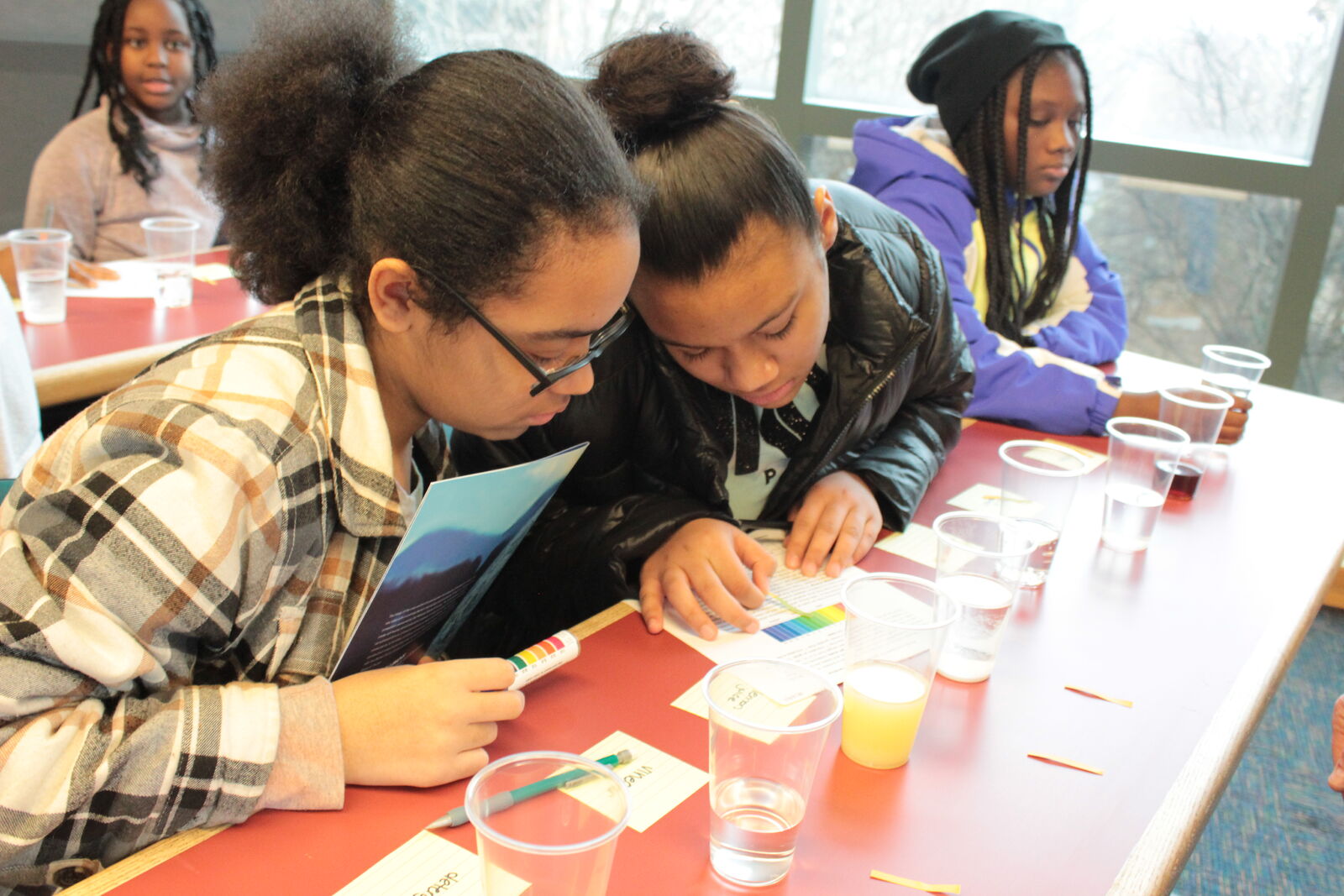
The year is 1934. A former classmate comes to you needing an easy, reliable tool to measure the acidity in lemon juice for Sunkist. How will he know they are ripe without biting into them?
Enter the pH meter, developed by Arnold O. Beckman, a tool still in use.
Young scientists will learn about the pH scale and meter. They will then use the scientific method to test how acidic or basic different household solutions are.
Target grades: 3-5
The year is 1934. A former classmate comes to you needing an easy, reliable tool to measure the acidity in lemon juice for Sunkist. How will he know they are ripe without biting into them?
Enter the pH meter, developed by Arnold O. Beckman, a tool still in use.
Young scientists will learn about the pH scale and meter. They will then use the scientific method to test how acidic or basic different household solutions are.
Target grades: 3-5
What's new with Beckman outreach
- Elementary school partnership builds bridges between students, Beckman community
- Laboratory and classroom partnership connects high school students with brain research
- How to take your science onscreen
- Beckman’s Owl Patrol takes flight
- Beckman sponsors STEM Career Exploration and Symposium
- From Ph.D. to pre-K: How outreach changed Nicole Godellas's approach to science
Have questions about outreach at the Beckman Institute? Contact us:

Lexie Kesler
Email: lkesler@illinois.edu
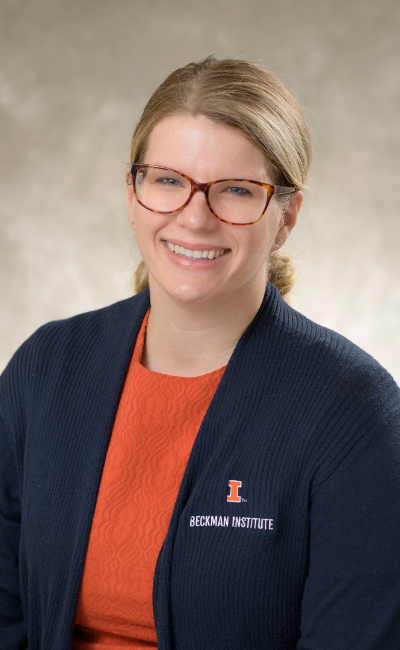
Meg Dickinson
Email: megd@illinois.edu
Beckman Institute for Advanced Science and Technology